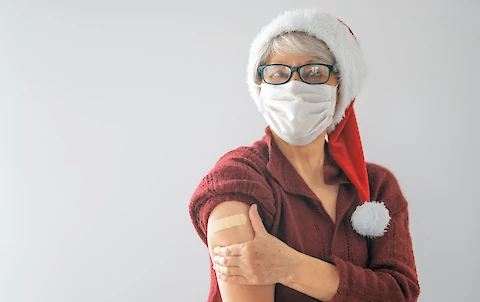
Respiratory Syncytial Virus (RSV), a common yet often overlooked virus, poses a significant threat to seniors, particularly during the cold months. Understanding and tackling RSV is critical to making sure our senior community continues to enjoy optimum health and well-being this winter. This Senior Helpers blog post sheds light on RSV and explores what it is, how it spreads, and why it can be especially severe for seniors. We will also provide practical advice for family caregivers on how to protect their loved ones from this virus.
Understanding RSV
Respiratory Syncytial Virus, or RSV, is a common respiratory virus that primarily affects the lungs and respiratory tract. The virus can be contracted by everyone, regardless of age, but it can prove particularly severe in certain groups, including seniors. RSV is highly contagious and spreads primarily through droplets containing the virus. When an infected person coughs or sneezes, the droplets can land in the noses or mouths of people nearby. Additionally, it can also be passed on through direct contact like shaking hands.
The Impact of RSV on Seniors
Seniors are at a heightened risk for severe symptoms when infected with RSV due to their weaker immune systems and potential for existing health conditions like heart or lung disease. The severity of RSV infections in seniors can range from cold-like symptoms to more serious lower respiratory tract infections like pneumonia or bronchitis. For seniors, these complications can lead to long-term health issues and extended hospital stays. In severe cases, it can be life-threatening.
How to Protect Seniors From RSV
Preventing RSV infection in our senior population is the first step. Here are a few things that can make a difference in keeping them healthy:
1. Practice Good Hygiene
The first line of defense is maintaining good hygiene practices. Regular and thorough hand washing can significantly reduce the risk of infection. Using hand sanitizers when soap and water are not available is also beneficial.
2. Get Annual Vaccines
One of the best ways to protect seniors from RSV is by receiving the recent CDC-approved vaccine. It is also recommended that seniors take advantage of the annual flu vaccination and pneumonia vaccine as they may provide some level of protection and can help prevent co-infections.
3. Be Aware of Symptoms
It is vital to keep a close eye on seniors' health during the winter months. Should they demonstrate symptoms of RSV like a runny nose, decrease in appetite, coughing, wheezing, or fever, seeking immediate medical attention is critical to prevent further escalation.
The Role of Caregivers
In-home senior caregiving companies like Senior Helpers can play a pivotal role in preventing RSV. By providing personalized care in a clean and controlled environment, these services minimize the risk of exposure to pathogens like RSV. Caregivers are trained to maintain high levels of cleanliness and hygiene and will keep a watchful eye for any signs of deteriorating health so action can be taken during these crucial early stages. Caregivers can also provide education for families and help them understand how to best protect their senior loved ones from such infections.
Senior Helpers Understands the Risks of RSV
Senior Helpers offers comprehensive in-home senior care services customized to meet the specific needs of our community's seniors and their families. If you live in the Palo Alto, Santa Clara, Sunnyvale, or Menlo Park areas, don't hesitate to contact us at Senior Helpers Palo Alto. We are happy to help you protect your senior loved ones from RSV this winter.